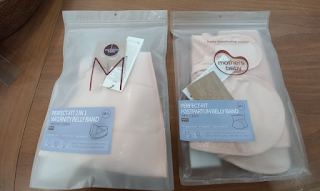Healthy Laundry Detergents, Harmful Ingredients and Eco-Alternatives
Laundry detergent is a common household product used frequently over a lifetime. However, it's essential to be aware of the potential health and environmental impacts associated with its long-term use, primarily due to the harmful ingredients it may contain. These ingredients can often lead to skin irritation and other health concerns with extended exposure. Moreover, detergent residue can persist on clothing fabrics.
Given that many households, especially those with children, perform multiple laundry cycles daily, it becomes crucial to consider options with fewer chemical ingredients. In today's commercialized society, finding products with entirely pure ingredients can be challenging. Nevertheless, detergent products are available that address these concerns by minimizing the use of harmful chemicals.
Environmental Impact
It's worth noting that some of these harmful detergent ingredients can also have a significant environmental impact. For instance, phosphates, often used as water softeners, can contribute to water pollution and harm aquatic ecosystems.
For consumers concerned about potentially harmful ingredients in laundry detergents, several key factors should be considered. These include avoiding or minimizing the following,
Phosphates
Seek "phosphate-free" or "low-phosphate" detergents to reduce water pollution and protect aquatic life.
Fragrances
Opt for fragrance-free or hypoallergenic detergents to avoid potential allergens and irritants that can affect sensitive skin.
Dyes
Choose products free from artificial dyes to prevent skin sensitivities and allergies.
Optical Brighteners
Consider detergents without optical brighteners, as these chemicals can cause skin irritation in some individuals.
Sulfates
Look for detergents without sodium lauryl sulfate (SLS) and sodium laureth sulfate (SLES) to reduce the risk of skin irritation.
Alternative Products
To make informed choices, consumers can also explore alternative products. Some recommended brands for eco-friendly and hypoallergenic laundry detergents include [Brand A], [Brand B], and [Brand C].
Regulatory Measures
Know governmental regulations and industry standards for detergent ingredients. These regulations often include labelling requirements and restrictions on certain chemicals to protect consumers and the environment.
Proper Use
To minimize health risks and environmental impact, follow recommended dosage guidelines, choose appropriate washing machine settings, and consider using lower water temperatures when possible.
Sensitivity Testing
It's always a good practice to conduct a patch test on a small skin area when trying a new detergent, especially if you have sensitive skin.
Waste Disposal: When disposing of empty detergent containers or unused or expired products, follow local guidelines for proper disposal to minimize environmental harm.
DIY Detergent
For those who prefer complete control over detergent ingredients, there are numerous DIY detergent recipes available online, allowing you to create your own eco-friendly and hypoallergenic alternatives.
Being mindful of the ingredients in your laundry detergent can lead to healthier choices for you and the environment. By considering these factors and exploring alternative options, you can make informed decisions that align with your concerns while ensuring the well-being of your family and our planet.





Comments
Post a Comment